Shropshire Star pre-election survey: Readers give their verdicts on politicians
We asked you to tell us what you thought about politics and politicians – and today we publish the results. Nearly 1,000 readers took part in our online survey and the results make fascinating reading.
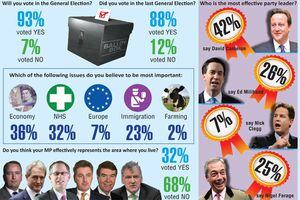
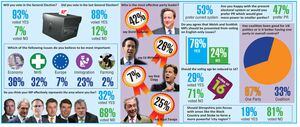
An overwhelming majority of readers who took part in the survey said they intended to vote in the General Election on May 7, an increase on those who turned out five years ago.
But many of them remain deeply sceptical about politicians' ability to represent their interests.
The economy was cited as the most important issue on people's minds, followed by the National Health Service.
The Scottish referendum was the most talked about and hotly contested poll in generations. And with the outcome of the General Election hanging in the balance, interest in May's poll seems to be almost as high.
A Shropshire Star survey of almost 1,000 readers showed that a staggering 93 per cent planned to vote. While that statistic is unlikely to be borne out at the polling booths, it is indicative of a new-found enthusiasm for politics among the electorate.
People realise that the forthcoming election is vitally important to a nation battling towards recovery following a period of recession and austerity. Decisions made this spring will have a huge impact on all of our lives.
The electorate is re-energised and has been re-awakened by contemporary politics. Engagement levels are at a peak.
There is some comfort for Prime Minister David Cameron, who had a clear lead as being the most effective party leader.
And while opinions were divided on many questions, there was a broad consensus on one issue. Shropshire Star readers voted overwhelmingly against the idea of the county joining forces with neighbouring areas to form a powerful city region.
Glyn Davies, Montgomeryshire MP, said in his constituency the NHS was the biggest issue for voters, but nationally the economy would be the priority for most people.
It was the celebrated humorist P J O'Rourke who once made a wry observation on the political process.
"Don't vote, it just encourages them," he more or less said. Only using more colourful terminology.
And then there was the Russian anarchist Emma Goldman, who famously observed: "If voting changed anything, they would make it illegal."
Cynicism about politics is hardly a new thing. Indeed there are many who believe that a healthy scepticism about the ruling classes is a fundamental part of our democracy.
But is the mood against our politicians harder today than it has been in the past? And will widespread cynicism about politics lead to a lower-than-usual turnout at the next election? Our survey about Shropshire Star readers' attitudes towards politics and democracy makes fascinating reading.
It should be noted that by far the vast majority of people who took part in our survey have said they intend to vote at the General Election. However, it is also clear that the figure has increased compared to those who voted five years ago.
And their satisfaction with our parliamentarians is low, with less than a third believing their MP effectively represents the area in which they live – although, of course, this will in many cases simply reflect the political views of the respondents.
Coalition government has not proved particularly popular either, with two thirds of those taking part preferring to see just one party in government – a sentiment no doubt echoed by most of the county's MPs themselves.
It is interesting that there is no stand-out issue which voters consider to be most important. The economy and health care, closely followed by immigration, are highlighted as the most important matters for politicians to address, with Europe lagging well behind.
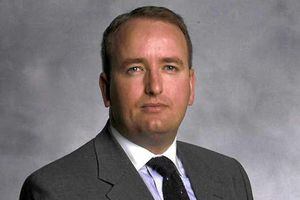
Mark Pritchard, who has been MP for The Wrekin since 2005, says MPs of all parties work hard to serve the public. But he believes that media coverage does not always reflect this, and says this plays a role in the public's scepticism towards politicians.
He says: "Cynicism is not helped when some parts of the media constantly undermine MPs.
"It is often the case MPs are damned if they do – damned if they don't. However, most MPs I know, in all parties, enter politics for the right reasons, a belief in public service.
"Our democracy is not perfect but the alternatives would make the UK a less attractive place in which to work and live. MPs do much good – it is seldom reported.
"I entered politics because I always felt a vocation for public service, from a very young age, that sense of service to the local and national community continues to this day."
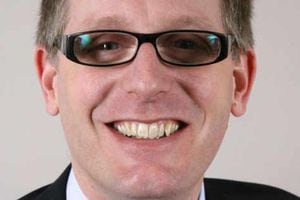
David Wright is Labour MP for Telford, a seat he has held since 2001. Prior to entering parliament, he worked as a housing strategy manager for Sandwell Council.
He says: "First and foremost politics is about public service. I became a councillor and then an MP because I wanted to serve the community and try to improve people's lives and the environment we live in. It's a great privilege to serve my home town in parliament, I've lived in Telford all of my life and I think that gives me a good understanding of the town and the people who live here.
"Over the last 14 years I've learnt that it's important to be a voice for Telford in Parliament, even when that challenges the London establishment. I also try to ensure that I'm available for constituents. I've held advice surgeries every month since being elected and I have a support staff in my local office. Together we tackle thousands of pieces of casework for people from Telford every year.
"At the moment I'm campaigning on the need for full 24 hour A&E services at the Princess Royal Hospital with a huge community petition."
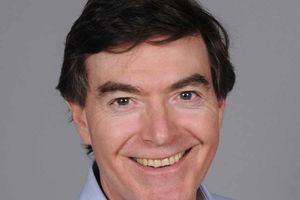
Philip Dunne has represented his home town of Ludlow since 2005, and has been responsible for his family's farm since 1987.
He asked his constituents who he should vote for in the 2005 Conservative leadership election, and after taking the advice of his constituents he voted for David Cameron.
He said: "The coming General Election presents the stark political choice on offer in Britain today. I will be presenting the positive case for rising prosperity and aspiration to secure Britain's future with the Conservatives.
"I am sometimes told that politicians are all the same and so are political parties. I disagree. We only have to look across the Channel to see the impact on France from adopting socialist policies. Britain last year enjoyed the fastest growth of any major economy in the world.
"This economic growth isn't just a number on a spreadsheet – it represents businesses expanding, creating more jobs and generating more tax revenue to invest in healthcare, schools and pensions. This is the essential difference offered in our politics at the coming election.
"I decided to stand, first as a South Shropshire district councillor and then as MP, because I wanted to improve the lives for all in the area where I and my children, were raised. I know there are a great many people passionate about our county and hope they will show this be exercising their vote on May 7."
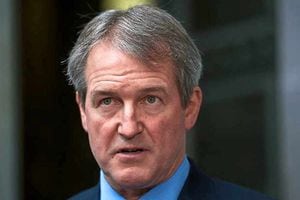
Owen Paterson has represented North Shropshire since 1997, and has previously served as Environment Secretary.
He believes one of the reasons for cynicism about politics is down to the fact that so many decisions are made by unelected officials in the European Commission.
"People feel they don't need to bother," he says. "To tackle this we need to bring back the decision making to local politicians.
"I think you have to establish a clear link to how much people are taxed and what they get for their money. I grew up in the shadow of the Soviet Union so know people are happiest with less regulation.
"The vast amount of people want to get on with their lives with minimal disruption."
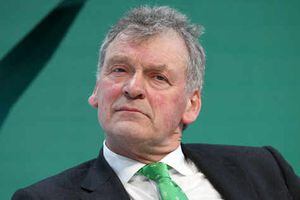
Glyn Davies was elected to become MP for Montgomeryshire at the last general election five years ago.
He says there are two main reasons why people are mistrustful of politicians.
"I think there is a hangover from the expenses scandal which has had a dramatic effect on people's views of politicians. It is still there now, that feeling that MPs are in it for themselves and are trying to make money from the system.
"Also, there is a serious lack of language that people can understand. I think politicians use language that they understand and people do not. It is cliche-ridden language that people do not use in real life and they just switch off.
"You can only change people's views through actions, not words. We have to use language people can relate to and do the job very straight. I keep on telling people in Montgomeryshire that I try to appear to be as unlike a politician as possible.
"It tends to be a joke I use, sometimes I might turn up and have coffee and I'll wear my gardening clothes. I tend to try and turn up unlike a politician because politicians are so unpopular."
Mr Davies is in favour of reducing the voting age to 16. "The challenge would then be persuading them to vote but I do think there would be an opportunity to engage with them," he says.
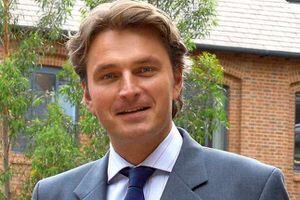
Daniel Kawczynski, who has been MP for Shrewsbury and Atcham since 2005, believes the way the media portrays politics has a big bearing.
"With the pressure of the 24-hour news cycle, British national media outlets are under pressure to deliver information speedily and succinctly but on many occasions they fail to take time to fully examine and report debates in the House of Commons and to convey in a substantial and meaningful way the objectives and aspirations of various political parties," he says.
Mr Kawczynski is keen to encourage young people to vote, adding: "I will be spending considerable time in the run-up to the election meeting with youth organisations and colleges to try to encourage young Shropshire residents to vote. The current 18 years limit for voting I think is appropriate and should be maintained."
Mr Kawczynski is a strong supporter of the first-past-the-post voting system.
"Politicians must be elected to a single constituency accountable directly to constituents within that specific confined district so that every opportunity is afforded to lobby and scrutinise them in a meaningful way."
While he believes that coalition government was appropriate for the situation which Britain faced in the aftermath of the 2010 election, he says it would be better if a single party wins the next election.
Perhaps surprisingly for a rural county, farming is well down the list, with just two per cent citing it as their main priority.
There is however, a strong feeling that something needs to be done to tackle the "West Lothian question", where Scottish and Welsh MPs are able to vote on matters which have no impact on their own constituents, but affect people living in England.
Around three quarters of those who took part in our survey said that only English politicians should be allowed to vote on English issues, in the same way that the Scots and Welsh have their own devolved powers.
One form of devolution which almost everybody seems to be opposed to is the creation of a 'city region'.
Last year, Labour leader Ed Miliband promised to put "city-region" government at the heart of his party's attempt to rebalance growth in the UK, claiming his plan represents "the biggest economic devolution of power to England's great towns and cities in a hundred years".
However, the idea of Shropshire joining forces with neighbouring areas such as Staffordshire or the Black Country is unequivocally rejected by people in the county, with fewer than one in 10 thinking it would be a good idea.
So why are people so mistrustful of politicians these days?
Conservative MP for The Wrekin, Mark Pritchard, argues that negative portrayals in certain sections of the media cast an unfair light on MPs of all parties who work hard to serve the people they represent.
Certainly the tabloids can be unforgiving, but this is hardly a new phenomenon, as Michael Foot, Neil Kinnock, John Major and William Hague will no doubt testify.
For a lot of voters, the scandal surrounding MPs' expenses, revealed in 2009, still lingers in the memory. Stories about claims for duckhouses, moat-cleaning and pornographic movies are still fresh in the mind, although of course many of those involved have since left parliament.
There is also the popular perception that too many of today's parliamentarians are "career politicians", with little experience of working outside the Westminster bubble.
Veteran Labour MP Dennis Skinner, easily one of today's most instantly recognisable parliamentarians, worked as a miner for 21 years.
He argues that today's parliament has become far too homogeneous, and that working in the pits gave him a "hinterland" viewpoint.
He says: "Today, we have a very narrow band in parliament. A lot more people used to come from different areas of work when I was first an MP."
However, another former coal miner in the House of Commons disagrees.
Conservative Transport Secretary Patrick McLoughlin, who worked the Cannock Wood colliery in Staffordshire during the 1980s, says: "Perhaps not the same as mine. I think I'm probably the only cabinet minister not to have gone to university, but I went to the university of life and probably learnt more as a result of it than some of those people who did go to university."
Nevertheless, there is unquestionably a perception among many voters that too many of today's MPs are cut from a similar cloth, and have more in common with each other than the people they represent. We all know the stereotype: dabbled in politics at university, followed by a few years as an adviser, then fast-tracked into a winnable seat, being promoted to the cabinet before they reach 40.
Politics still has its characters, though. Boris Johnson, who is seeking a return to Westminster seven years after standing down to become Mayor of London, is consistently ranked as one of the most popular politicians.
Labour's Alan Johnson and the Liberal Democrats' Charles Kennedy are also perceived by many as affable and in touch with the common man.
The same could be said about Ukip leader Nigel Farage, whose finely honed image as a straight-talking, beer-swilling man-of-the-people has been perceived by many as a refreshing change from the leaders of the three traditional parties.
Euro MP Jill Seymour, who is standing in The Wrekin constituency at the General Election, says: "He (Nigel Farage) is down to earth with all members of the public, and walks side by side when discussing their issues."
However, while his persona has certainly won him many friends in the media, it seems Shropshire Star readers are still uncertain about his ability as a potential prime minister.
Our readers placed David Cameron as by far and away the most effective party leader, with Mr Farage and Ed Miliband on 25 per cent and 26 per cent respectively. Nick Clegg, who stole the show during the live television debates at the last election, has nosedived in voters' perceptions, being rated the best party leader by just seven per cent.
It seems, at least as far as our readers are concerned, a genial personality and an ability to perform on television do not have the impact one might expect.
Former Labour Party adviser Matthew Taylor – a driving force behind Tony Blair's famous "five key pledges" at the 1997 General Election – believes cynicism among voters is so great that many people will actually vote for parties they do not actually support, on the assumption that they will fail to deliver their policies anyway.
For example, he argues that many voters who prefer Labour's economic policy will question whether George Osborne can actually cut the deficit as fast as promised, or whether he would in reality deliver something close to what Labour has promised.
"In other words, if you vote for Osborne's plan, many experts think you will get something closer to Balls'," he says.
But another reason for the public's suspicion about MPs could actually be down to their eagerness to please. Or at least to appeal to certain sectors of the electorate.
As polling techniques have become increasingly sophisticated, elections – at least in the eyes of voters – have become more about targeting specific groups rather than a battle of ideas.
Take, for example, the controversy sparked by Labour's pink "Woman to Woman" battlebus, which was unveiled last week as the party's secret weapon in wooing the female vote.
The bus – or van, to be precise – will tour 70 of Britain's most marginal constituencies, focusing on five areas Labour believes are crucial to women: childcare, social care, domestic violence, equal pay and political representation. Labour said it would engage with women outside the school gates, in shopping centres and in work places, with a particular emphasis on the nine million who did not vote in the last election.
However, far from winning praise for Labour's efforts to engage with women, the bus became an instant figure of fun, with critics queuing up to post their thoughts on Twitter. Some called it the "the Barbie Van", others said it looked like something from a "Sheila's Wheels" car insurance advert, and better suited to transport for a hen-night. "Patronising" was the typical response, and the main debate was not about Labour's policies for female voters, but the colour of the van: Harriet Harman was moved to insist it was not pink, but "magenta".
Not that Labour is alone in attracting ridicule for its blatant attempts to win over certain groups.
Last year a Conservative Twitter campaign, intended to promote the Government's cuts in beer and bingo taxes, backfired spectacularly. The slogan "Cutting the bingo tax and beer duty, to help hardworking people do the things they enjoy" became an overnight laughing stock. There is indeed a fine line between connecting with the voters, and appearing condescending.
Would a change in the electoral system re-energise our democracy, and restore confidence in the system?
Well, opinion is fairly evenly divided regarding the method by which MPs are elected, with a narrow majority favouring the present "first past the post" system over proportional representation.
And there is little appetite for extending the right to vote to 16 and 17-year-olds, though, with less than a third calling for the voting age to be reduced.
